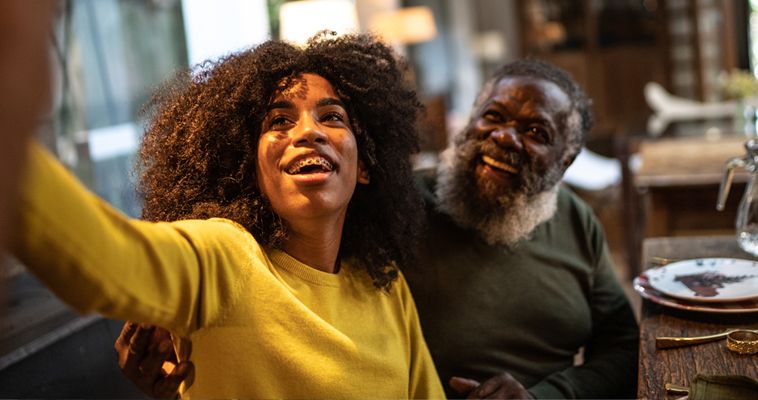
The holiday season can be a festive time, but if the holidays have you singing the blues, you’re in good company. According to a 2017 AARP survey, nearly one-third of adults say they have felt lonely during the holiday season and 4 in 10 say they’ve felt worried about a loved one feeling lonely.
Staying connected and active is essential to good health. According to the Centers for Disease Control and Prevention, people who have social relationships that make them feel supported and cared for enjoy better mental and physical health and longer lives.
Feeling lonely can happen at any age, but for many older adults it can be a problem that worsens with time and social isolation. While many like the idea of spending time with family and friends, it isn’t always easy. Getting out to visit others, for example, can be a challenge for older people who may no longer drive or who simply aren’t as mobile or confident navigating crowded spaces as they once were. Other changes in health that come with growing older—decreased energy levels, loss of friends/family, decreases in hearing and vision, disability, for example—can also curb activities.
We all need meaningful connection to survive and thrive. This holiday season, consider giving the gift of love, compassion and social connection. We’ve compiled the following ideas on ways to stay connected.
Supporting yourself and others
Volunteer: Engaging in meaningful activities that help others is a great way to feel better and bring yourself closer to others. If you can’t go out, there are organizations such as AmeriCorps Seniors and AARP Foundation that can help you find the right service opportunity to fit you, including virtual volunteering options.
Tech Time: The next best thing to meeting in person is using technology to connect. Use your computer and smartphone to text, email, share photos, or have an individual or group video call with friends and family. Many people use apps like WhatsApp, WeChat and Facebook Messenger to send messages internationally for free.
Holidays at Home: Spending a little time in the company of someone you love can make any season brighter. Consider doing small projects that are not time intensive, such as writing holiday cards, making a batch of cookies, planning a gathering, or simply sharing memories.
Get Creative: Painting, music, sewing, sculpting and even cooking are all forms of creative expression that can help reduce loneliness – even if the activity is done alone. Taking a class, whether in person or online, is a great way to not only connect with your creativity but also meet others with similar interests. And if you’re more of an appreciator of the arts than a doer, you might consider going to a holiday concert or tuning into a livestream event.
Friendship Line: If you feel lonely and aren’t sure where to start, give the Friendship Line a call. The Friendship Line is a program of the Institute on Aging that offers a 24-hour hotline and warmline for people 60 and older who may be lonely, isolated, depressed, and/or thinking about death or suicide. It offers well-being check-ins, emotional support and friendly conversation, information and referrals, and crisis intervention. Call the Friendship Line at 1-800-971-0016.
